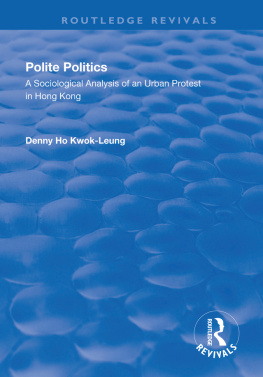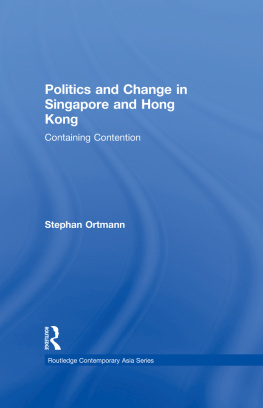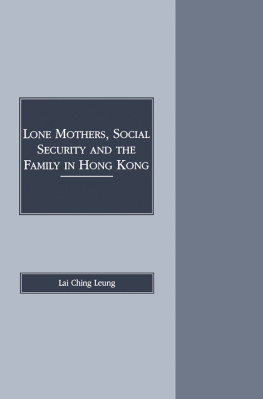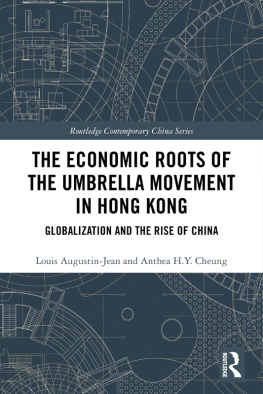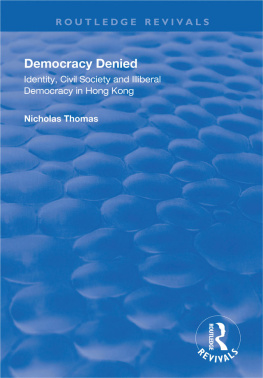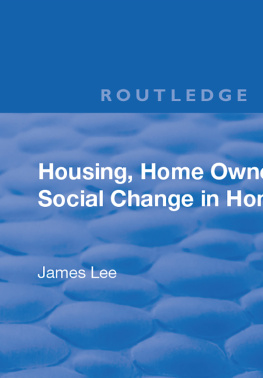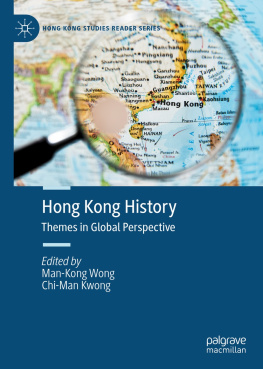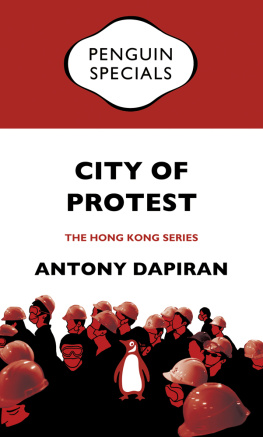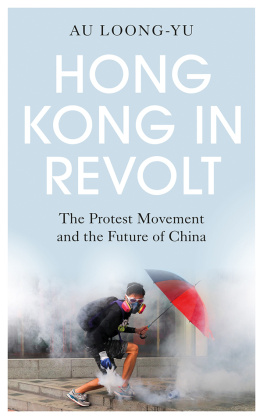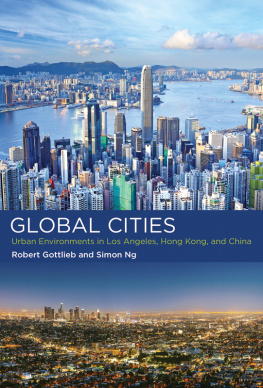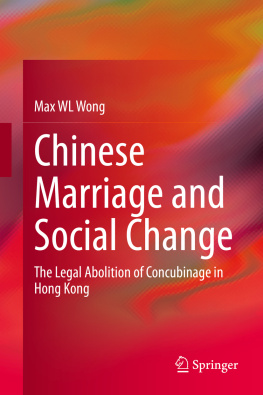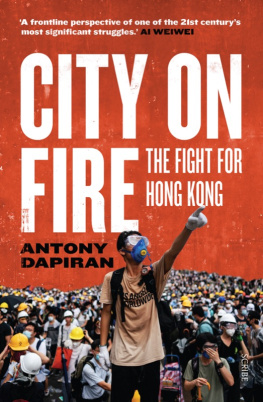POLITE POLITICS
Dedicated to my friend S.K. Lee
Polite Politics
A sociological analysis of an urban protest in Hong Kong
Denny Ho Kwok-Leung
First published 2000 by Ashgate Publishing
Reissued 2018 by Routledge
2 Park Square, Milton Park, Abingdon, Oxon OX14 4RN
711 Third Avenue, New York, NY 10017, USA
Routledge is an imprint of the Taylor & Francis Group, an informa business
Copyright Denny Ho Kwok-leung 2000
All rights reserved. No part of this book may be reprinted or reproduced or utilised in any form or by any electronic, mechanical, or other means, now known or hereafter invented, including photocopying and recording, or in any information storage or retrieval system, without permission in writing from the publishers.
Notice:
Product or corporate names may be trademarks or registered trademarks, and are used only for identification and explanation without intent to infringe.
Publisher's Note
The publisher has gone to great lengths to ensure the quality of this reprint but points out that some imperfections in the original copies may be apparent.
Disclaimer
The publisher has made every effort to trace copyright holders and welcomes correspondence from those they have been unable to contact.
A Library of Congress record exists under LC control number: 00134025
ISBN 13: 978-1-138-74023-5 (hbk)
ISBN 13: 978-1-315-18376-3 (ebk)
I would like to express my thanks and gratitude to my supervisor, Professor Chris Pickvance, for his guidance and supervision on the study. He showed great patience in reading through my drafts, gave valuable suggestions on both the content and the presentation of this study, and provided scholarly advice and personal support.
Special thanks to all the community social workers and volunteer organizers who took part in the Aged Temporary Housing Area protest. Without their gracious assistance, this study could not have been conducted. I wish to extend my thanks to Ms. Samantha Chan who assisted me in finishing the fieldwork; to the postgraduate students in the Urban and Regional Studies Unit, University of Kent at Canterbury, who have helped in many ways; and to Ms. Terry McBride who spent great effort in editing my English.
This study was generously supported by the Staff Development Committee, Hong Kong Polytechnic University.
Finally, I am indebted to the residents of the Kowloon Bay and Ping Shek THAs who patiently answered my questions and let me know how they dealt with the social forces impinging upon their daily lives. I acknowledge with gratitude their willingness to recount their rich experiences and reflection on their protest.
This study is concerned with an urban movement and its role in urban politics. An urban movement is conceived here as an individual organization 'which make[s] urban demands whatever their levels and effects' (Pickvance, 1985:32). Our focus will be on the origin, the character and the effects of a housing movement in Hong Kong. A housing movement is one of the sub-types of urban movement, in particular arising in relation to issues concerning the management and distribution of housing resources. An issue concerning Aged Temporary Housing Areas (ATHAs) will be taken as a case study in order to throw light on the reasons why, and how, urban minorities in Hong Kong employ collective actions to protect or advance their interests. Furthermore, we shall draw on the findings of this study to shed light on the theoretical discussion about the process of translating a social base to a social force (Pickvance, 1977).
In this chapter, we shall discuss the significance of the study of urban movements in section 1.1. Its significance to the study of urban politics in Hong Kong is presented in section 1.2. Section 1.3 will spell out the method and data used in this study. The final section is about the structure of this book.
Before going into the discussion about the significance of the study of urban movements, it is useful to place the housing movement in Hong Kong in the context of other types of political action. Based on the data collected through a study of the social conflicts in Hong Kong in the period from 1980-91 we found a number of features of the housing movement in Hong Kong.housing conflicts involved federal forms of organization; in other words, organizational alliance was a very insignificant form of organization in the housing movement. Fourthly, as will be shown in detail later, most of the forms of action were confined to petitions, press conferences and sending letters to the media. By contrast, disruptive contests were less likely to be a form of action taken in housing conflicts. This indicates that the most popular form of action taken in housing disputes is 'polite protest actions' which refer to the protest activities that 'eschew or at least avoid the extensive physical damage to property and humans found in violent struggle on the one side and the restraint and decorum of staid politics on the other' (Lofland, 1991:261). These findings support Saunders' description of the nature of urban movements as 'typically fragmented, localized, limited to a narrow range of concerns, and politically isolated from broader radical movements' (1980:551).
Despite being one of the most frequent categories of social action, the housing movement has not developed into a social force with a wide scope for forming an alliance, and its concerns seldom reached issues at territory-wide level. Such features lead us to reconsider the nature of community-based movements. Boyte (1980) explained them by reference to the localism, narrowness of constituency and the dominance of paid staff in community movements. Fisher and Kling (1993) held a positive view on community movements despite the small scale of this kind of collective action. They argued that such grassroots mobilization was the result of the popular strategies of parochial and self-serving kinds.
This study attempts to shed light on these features of the housing movement in Hong Kong and to explore the factors giving rise to these features and the trajectory of working class people's collective action in pursuit of their interests. Also, we are interested in the reasons underpinning the use of 'polite protest actions' as the dominant strategy in housing movements. It will be argued that the concept 'polite protest action' is the key to understanding the nature and character of the housing movement in Hong Kong; and we shall discuss this concept farther in the next section.
Why should we study urban movements?
An urban movement is an individual organization making urban demands. It is distinguished from 'urban social movements' - a sub-type of urban movement which is reserved for denoting urban movements that can achieve high-level changes (Pickvance, 1985:32). Urban social movements have been regarded as an important agent of social change by a new school of sociological approach known as new urban sociology (Zukin, 1980). The new urban sociology is in fact a critique of the classical tradition of the Chicago School. Urbanization is conceived by the Chicago School to be the result of a natural evolutionary process, and competition and population increase are the impetus for social change. Although acknowledging the hardship and suffering of the underprivileged, the Chicago School 'falls back on oddly mechanical explanations for those facts, such as the purported effects of population density, size and heterogeneity' (Walton, 1993:99). Collective actions by the underprivileged, in the eyes of the scholars of this tradition, are considered to be the result of social disorganization or the psychological imbalance of individuals (Park, 1952).

